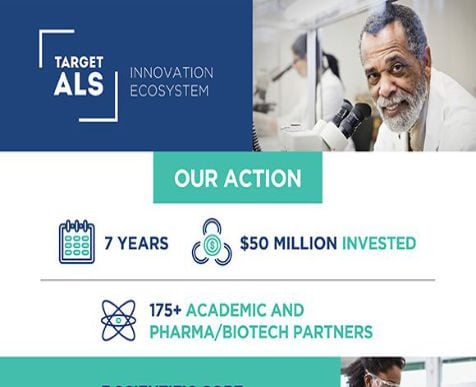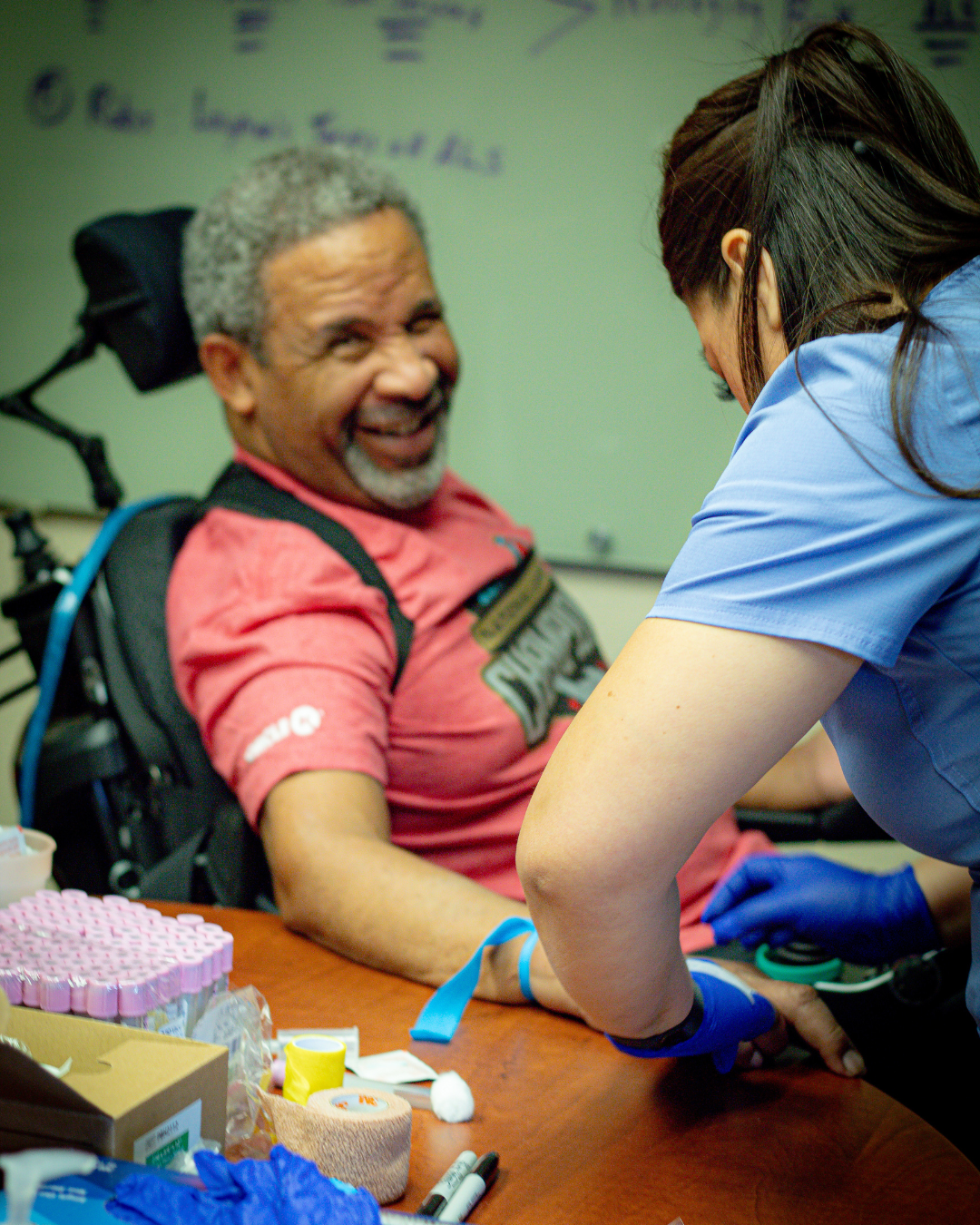Finding the key to successful clinical trials through biomarkers for ALS.
Understanding ALS begins with a challenge: we can’t directly observe what’s happening in the brain. Instead, scientists must rely on biomarkers, biological signals found in blood, spinal fluid, imaging scans, or physical functions like breathing and speech, to track how the disease unfolds. However, developing reliable biomarkers has been especially difficult in ALS.
Tackling TDP-43: A systems-level approach to a central driver of ALS
TDP-43 protein dysfunction is a defining hallmark in 97% of ALS cases, as discussed, linking both familial and sporadic forms of the disease. Its mislocalization from the nucleus to the cytoplasm disrupts RNA processing, leads to toxic aggregation, and drives widespread cellular dysfunction. Despite its central role in ALS pathogenesis, TDP-43 remains a challenging therapeutic and biomarker target due to its dual toxicity, mechanistic complexity, and patient variability.
To address this, Target ALS has prioritized a systems-level strategy, allocating 30% of its research portfolio to TDP-43-related science. This includes funding across the therapeutic pipeline, from basic mechanistic studies and antisense oligonucleotides to small molecules and gene therapies, while simultaneously advancing non-invasive biomarkers essential for early diagnosis and clinical trial readiness.
Learn more about how we are tackling TDP-43 here.
Projects highlights at the Target ALS 2025 Annual Meeting
The below projects highlight projects that are making significant strides in identifying and developing biomarkers:
Tiny Packages, Big Clues: How Fluid Biomarkers Could Transform ALS and FTD Diagnosis
Imagine diagnosing ALS or frontotemporal dementia (FTD) through a simple blood test, before symptoms ever appear. That’s the bold vision behind a cutting-edge international research effort led by scientists at Novartis, in collaboration with DZNE, Oxford University, and KU Leuven. Their focus? Tiny, cell-derived particles called extracellular vesicles (EVs) that may carry the earliest and most reliable molecular clues of neurodegenerative disease.
Using Neural Networks to Predict ALS Progression
A Neurology Registrar and PhD candidate at Trinity College Dublin, Dr. McFarlane is at the forefront of a new wave of research that blends clinical care, epidemiology, and machine learning. At this year’s Target ALS Annual Meeting—his first—he shared how these threads are converging in his project: a data-driven effort to understand ALS heterogeneity and reimagine clinical trials using “digital twins.”
Stay connected with the latest in ALS research and advocacy. Follow Target ALS on LinkedIn, Twitter/X, and Instagram, and sign up for our newsletter here to receive regular updates and stories of hope from the ALS community.




